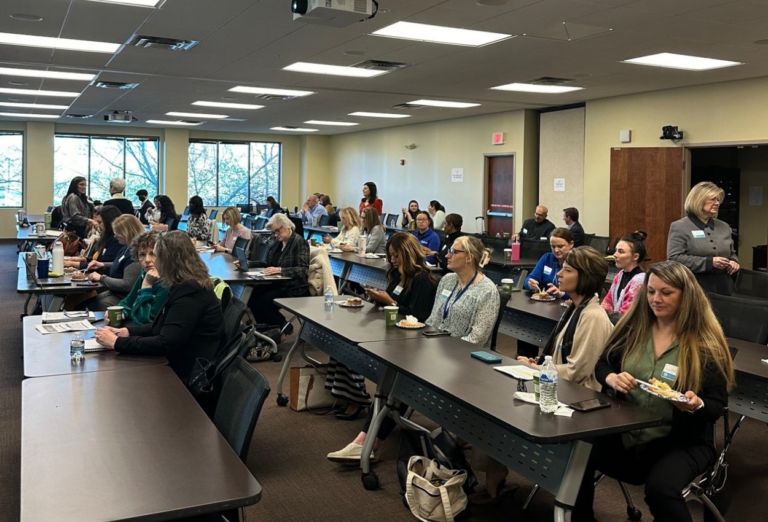(Note: This guest piece was written by Ben Chandler, President and CEO, Foundation for a Healthy Kentucky)

A Foundation for a Healthy Kentucky community-driven children’s health initiative called “Investing in Kentucky’s Future” (IKF) strengthened cross-sector coalitions in seven Kentucky counties. The initiative also improved student eating habits, increased youth physical activity, trained teachers to support students experiencing trauma, and increased youth resilience. The six-year, $2.4 million initiative also led to the adoption of 38 local ordinances and policies to help sustain the improvements and promote health equity long-term.
The IKF initiative supported demonstration programs in seven
Kentucky counties and was designed to reduce the risk that school-aged children
will develop chronic diseases later in life. The communities contributed
another $1.7 million in matching funds under the initiative, which reached
nearly 13,000 students in 28 participating schools.
Unlike most philanthropic grants, the IKF initiative’s community-driven
approach allowed the local coalitions to choose the topic on which they wanted
to focus, and then funded a one-year planning phase during which the Foundation
also provided training and technical assistance in the development of a
business plan. This made the grant program more accessible to small communities
with fewer resources. The Foundation also required Coalition members to attend
twice-yearly trainings it provided with national and state experts in areas
such as youth engagement, health equity, developing policy and influencing
policymakers.
Six of the Foundation’s IKF grantees – in Breathitt, Clinton, Grant, McLean, McCracken and Perry Counties – selected childhood obesity prevention as the issue they would address through the initiative. The Jefferson County coalition focused on Adverse Childhood Experiences (ACEs) and building resilience in children who have faced trauma. Both issues are complex and influenced by a variety of biological, behavioral, social and environmental influences, so they require the cross-sector approach that coalitions can bring. Participants told the Foundation that identifying a local champion and engaging the school system were critical to success in each of the counties. But by far the most decisive factor was ensuring that the local health coalition included multiple members from a broad range of community organizations – schools, hospitals, elected officials, youth groups, and businesses. It takes more time to get everyone aligned but the resulting collaboration makes all the difference in creating long-term change to improve health.
School-based interventions were ideal for both obesity prevention and ACEs because kids spend more than 1,000 hours a year and consume up to half their daily calories at school. The Foundation has now launched a statewide school-based health coalition to share and implement some of the lessons learned in the IKF initiative; the steering committee for that coalition will begin meeting soon.
Among the IKF initiative’s successes:
- Policy change: A total of 38 local policies were adopted by the communities at the county, city and organizational levels.
- Policies related to childhood obesity prevention expand physical education in middle school, require future streets to be usable by walkers and cyclers as well as cars, allow school fitness equipment to be used by the community after school, and make healthier foods available in schools and park concession stands.
- Policies that support resilience in children include requiring trauma-informed training for all Jefferson County Public Schools (JCPS) and ACEs training certification for out-of-school youth care workers and agencies that receive funding from Metro Louisville’s Office of Youth Development.
- Built Environment: Additions including new parks, fitness equipment, sidewalks and walking paths, playgrounds, filtered drinking water fountains, community trails and standing desks in schools. Many communities leveraged the Foundation grant to secure additional funding. For example:
- Purchase Area Health Connections-Paducah Chapter secured another $400,000 Rotary Club grant to build a playground at the health park developed with IKF funding, and then another $500,000 donation to build a second phase of the park.
- Sidewalks to school that were built in Grant County will be included as part of a 48-mile trail system under development thanks to a follow-up grant from Interact for Health.
- FFLAG in Grant County also worked with five elementary schools to win another grant to fund additional outdoor play equipment for students.
- Expanded Engagement by youth, parents and members of the community in health coalitions that develop health events, farmers markets, and school-based clinics. Several coalitions incorporated youth as members or established youth councils.
- Increased Physical Activity and Improved Nutrition for more than 90 percent of the students in participating elementary and middle schools in the counties where obesity prevention was the focus. Among the programs:
- Many schools incorporated classroom movement activities and standing desks.
- Many communities adopted annual events and activities, such as fun runs and walking and biking programs, and the Annual Nutrition Fair created by the Partnership for a Healthy McLean County.
- The Clinton County Healthy Hometown Coalition set up a Fitness Buddies program in which high school students worked with 3rd and 4th graders in intense physical activity during the school day.
- Many schools eliminated deep fryers in their cafeterias, installed filtered drinking water fountains, and partnered with local farmers’ markets in farm-to-school programs that brought fresh produce to students.
- All six coalitions began or expanded student food programs over the weekends or the summers.
- Most students reported that school was their only source for fruits and vegetables; offering produce at snack time “appears to be a successful strategy” to increase consumption, the report found.
Additional gains specific to the trauma resilience-building model program implemented by the Bounce Coalition in Louisville, included:
- A 56 percentage-point improvement – from 30 percent to 86 percent – among participating Jefferson County Public Schools teachers and staff who felt they could be effective in supporting students who are experiencing traumatic events in their lives.
- Improved school climate in all nine areas measured
- Parent conferences increased 195 percent from 2014 to 2017.
- Teacher retention improvement, from 87.8 percent in 2014 to 90.2 percent in 201
Bounce also leveraged the Foundation grant to gain support from the Kentucky Department for Public Health for gatherings with community leaders to discuss ACEs and practical strategies for building resilience and provide training for healthcare providers and other organizations to foster resilience-building practices in several neighboring communities.
A full report regarding the Foundation’s IKF initiative is available on its website. Two videos produced by the Foundation also are available: the obesity prevention video can be found here and the ACEs video can be found here.





